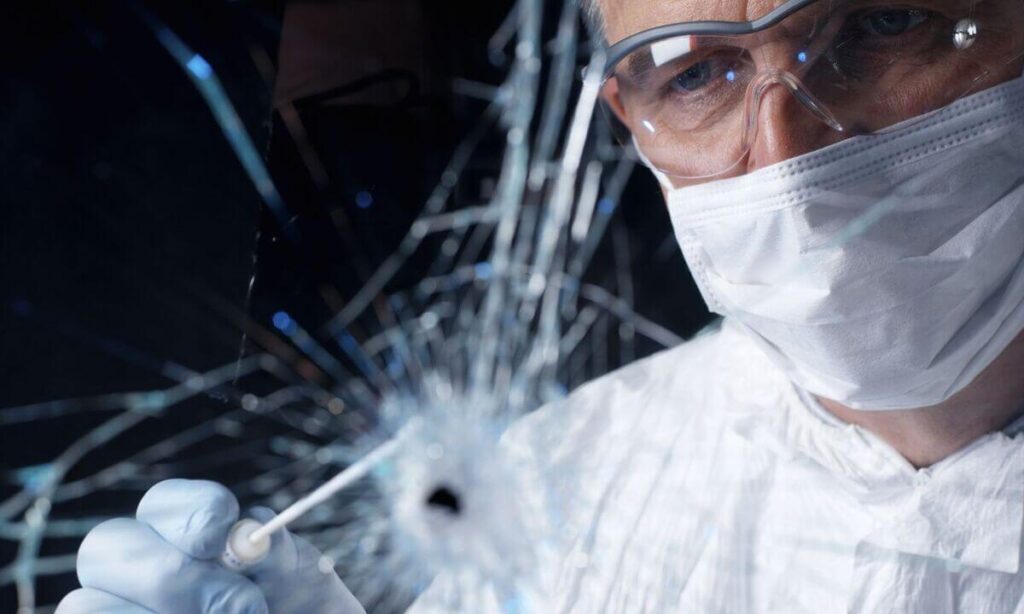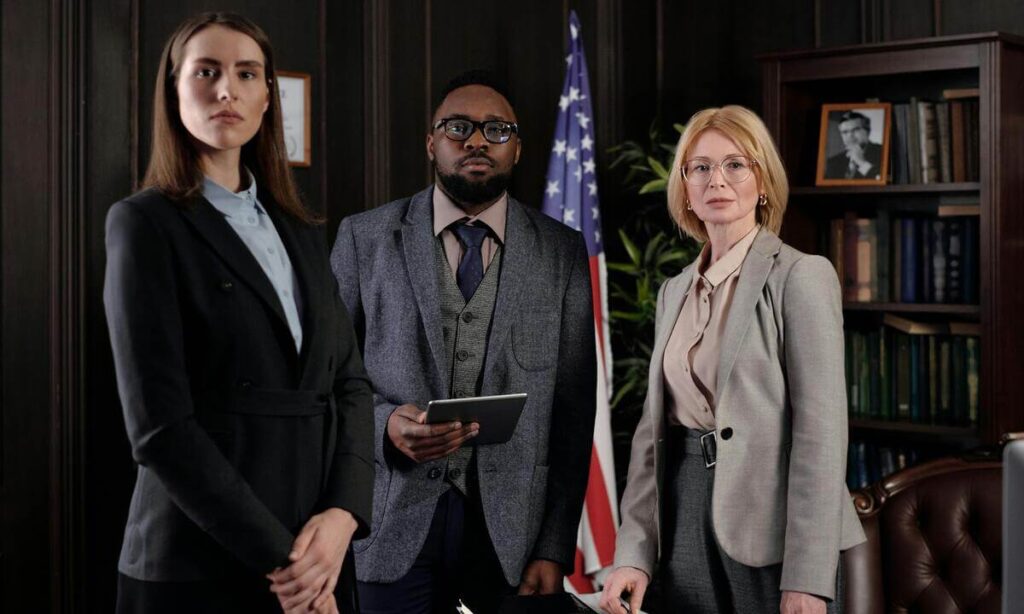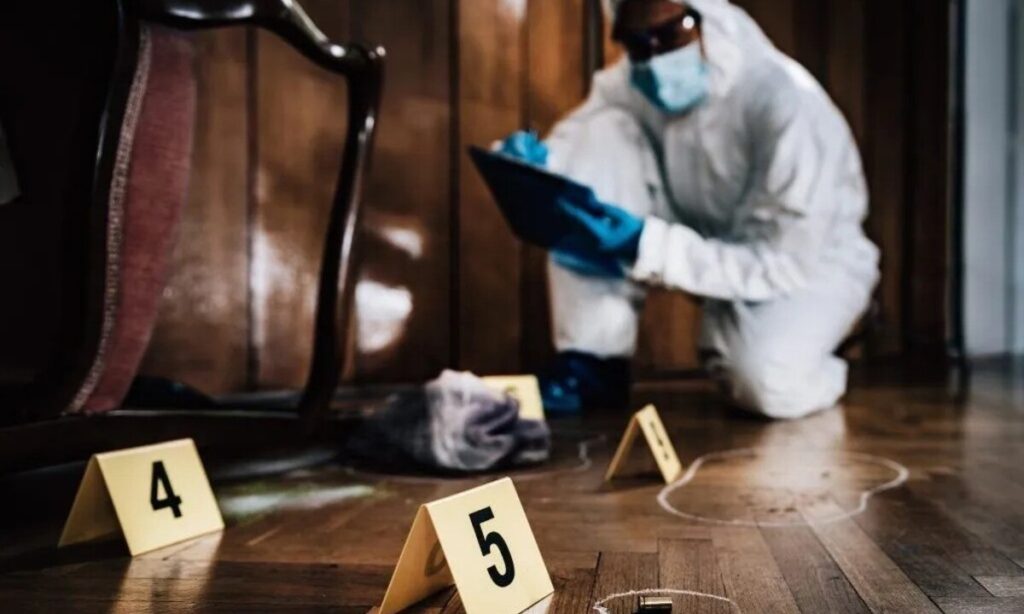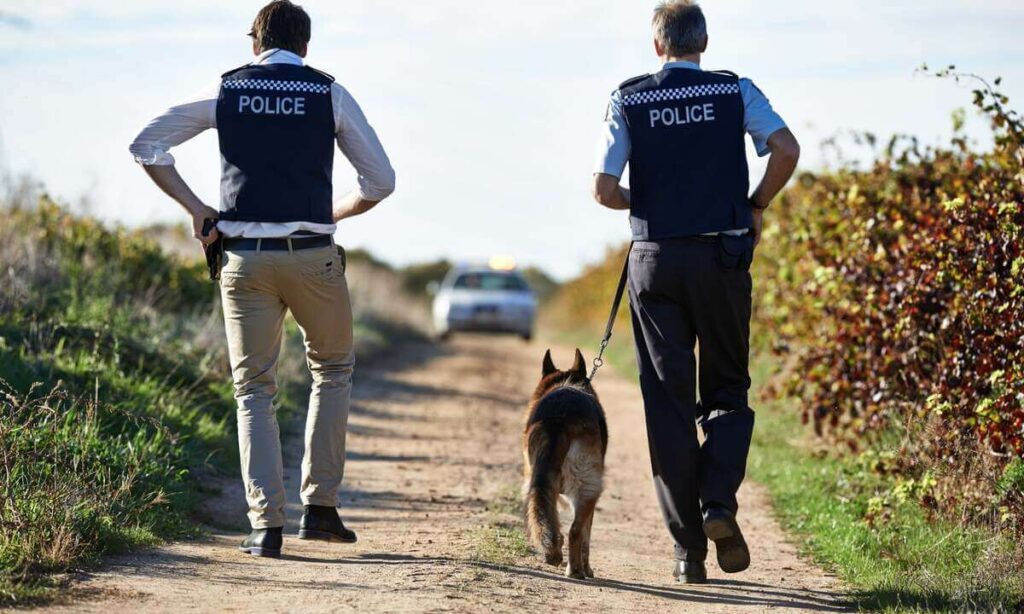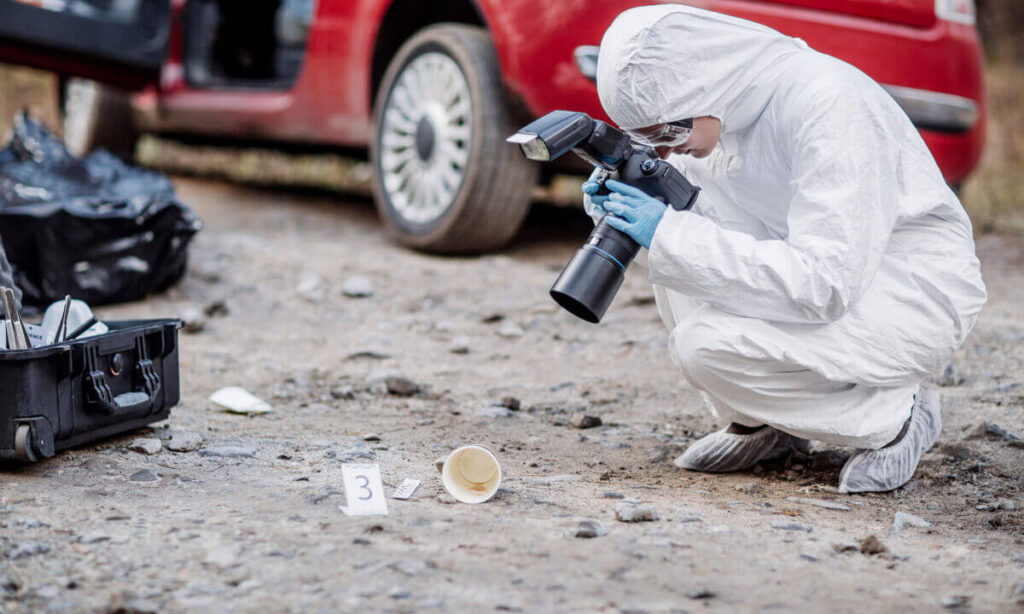The scientific study of projectiles in motion, including explosives, missiles, and bullets, is known as ballistics. It entails an analysis of these projectiles’ flight characteristics, behavior, and impacts. In criminal investigations, ballistics specialists are essential because they examine evidence pertaining to firearms to ascertain bullet trajectory and furnish critical details about the event. A career as a ballistics expert can be exciting and fulfilling if you have a keen eye for detail and a passion for forensic science.
What does a ballistics expert do?
Examining and analyzing firearms and ballistic evidence to support criminal investigations is the main duty of a ballistics expert. You will be taking part in the investigation of guns, spent rounds, ammunition, and other relevant evidence. You can ascertain the kind of weapon used, the distance it was fired from, and even the angle of the shot by closely examining these materials. Law enforcement organizations can benefit greatly from your findings, which can help them piece together the details surrounding a crime.
Ballistics specialists may be asked to testify as expert witnesses in court in addition to providing crime scene analysis. When it comes to clearly and concisely presenting complicated technical material to juries and judges, your experience and knowledge will be invaluable. To piece together the puzzle of a crime, you might also work with other forensic specialists like DNA analysts and fingerprint experts.
Steps to become a ballistics expert
It takes a combination of schooling, training, and real-world experience to become a ballistics expert. If you want to work in this field, you should take the following important steps:
1. Education requirements
To begin your career as a ballistics expert, you must earn a bachelor’s degree in physics, chemistry, forensic science, or a similar discipline. The scientific theories and methods utilized in forensic analysis are thoroughly covered in these programs. Among other pertinent topics, you will learn about trace evidence analysis, ballistics, and firearms. The accreditation and recognition of a program by industry professional associations is of utmost importance.
It is advisable that you take elective courses on ballistics and firearms during your undergraduate studies. Your knowledge and comprehension of the subject will increase as a result of these courses, providing you an advantage over others when you go on to pursue specialized training.
2. Internship and training
It is very advised that you look for internships or part-time jobs in forensic labs or law enforcement organizations while you are earning your degree. You will be able to apply the theoretical knowledge you learned in the classroom to real-world situations thanks to this practical experience. Working with seasoned experts will help you hone your abilities and obtain insight into the regular duties of a ballistics expert.
You might think about going after further ballistics training courses or certifications after earning your degree. These courses offer in-depth training in the industry, addressing subjects like bullet trajectory analysis, gunshot residue analysis, and firearm identification. You can improve your marketability and credibility as a ballistics expert by enrolling in certification programs offered by some organizations, like the Association of Firearm and Tool Mark Examiners (AFTE).
3. License
Ballistics experts need to obtain a license in order to practice in many jurisdictions. Depending on the jurisdiction, there are different requirements for licensure, but they usually include passing a licensing exam, gaining experience, and having completed some education. Make sure you meet all the requirements by doing some research on what is required in your area.
Skills and knowledge required for the job
You will need to gain a variety of skills and in-depth knowledge in a number of areas in order to succeed as a ballistics expert. The following are some of the fundamental abilities and subject areas needed for this line of work:
- Analytical skills: To effectively evaluate complex data and evidence, a ballistics expert needs to possess strong analytical abilities. You must be able to make connections between ideas and infer implications from your research.
- Attention to detail: In this line of work, the capacity to notice and evaluate even the smallest details is essential. In a criminal investigation, a small detail on a bullet or a small difference in a cartridge case may hold important clues.
- Technical expertise: You need to be extremely knowledgeable about weapons, ammo, and associated gear. This includes being familiar with the various kinds of firearms, the components of ammunition, and the fundamentals of ballistics.
- Scientific knowledge: It’s crucial to have a solid foundation in physics and chemistry in particular. Your ability to accurately analyze and interpret ballistic evidence will depend on your understanding of concepts like gravity, velocity, and kinetic energy.
- Communication skills: You will frequently have to interact with law enforcement officials or present your findings in court as a ballistics expert. To effectively communicate complex technical information to a non-technical audience, one must possess effective written and verbal communication skills.
- Ethical standards: In the field of forensic science, upholding the highest ethical standards is essential. You will work with evidence as a ballistics expert that could seriously affect people’s lives. You must approach your work with honesty, impartiality, and dispassionate analysis.
Developing these skills and knowledge areas will require continuous learning and staying updated with advancements in the field of ballistics.
Job opportunities and career prospects
The growing need for forensic analysis in criminal investigations is driving a steady increase in the demand for qualified ballistics experts. You can work as a ballistics expert for a variety of companies, such as government agencies, forensic labs, and law enforcement agencies. To help with their casework, private forensic consulting firms may also employ ballistics specialists.
You might be able to specialize in a certain field of ballistics, like bullet trajectory reconstruction or gunshot residue analysis, with experience and knowledge. This can boost your earning potential and lead to more advanced career opportunities.
Ballistics expert’s salary outlook
A ballistics expert’s pay may differ based on a number of variables, including location, level of experience, and hiring company. According to the Bureau of Labor Statistics (BLS), a ballistics specialist should anticipate making $63,740 annually on average. This number can rise dramatically with more training and specialization. It is significant to remember that compensation can differ significantly based on the particular jurisdiction and level of demand for forensic services in that region.
Famous ballistics experts and their contributions
Numerous ballistics specialists have made important contributions to the field throughout history. Their contributions have influenced our comprehension and examination of ballistic evidence. Several well-known ballistics specialists are:
- Calvin Goddard: Often referred to as the founder of modern ballistics, Goddard created a variety of methods for testing guns and ammunition. He was the first to use comparison microscopes to match bullets to particular types of guns.
- Lucien Haag: Haag’s contributions to the field of gunshot residue analysis have proven invaluable in establishing if an individual has fired a weapon. Numerous criminal investigations have made use of his research and expertise.
- Robert F. Borkenstein: Although he is best known for his work on breathalyzer technology, Borkenstein also created methods for reenacting shooting incidents and analyzing bullet trajectory.
These professionals have made a significant contribution to the field of ballistics and continue to have an impact on contemporary forensic procedures.
Challenges and rewards of being a ballistics expert
Being a ballistics expert can be a rewarding and challenging job. Because of the nature of the work, one must be able to work under pressure, analyze data for extended periods of time, and pay close attention to detail. As a ballistics specialist, you might run into some of the following difficulties:
- Emotional toll: Handling violent crime scenes and delving into the evidence surrounding tragic events can be emotionally taxing. It’s critical to establish coping strategies and ask for help when required.
- Complex cases: There are situations in which there may be several pieces of evidence and complex scenarios. Such cases can be intellectually taxing to analyze and interpret, requiring a thorough comprehension of ballistics principles.
- Courtroom testimony: It can be difficult to convey intricate technical details to a non-technical audience in a courtroom. Success requires the development of strong communication abilities as well as the capacity to simplify difficult ideas.
Being an expert in ballistics can be very satisfying, despite the difficulties. Your efforts can have a big influence on criminal investigations, resulting in the administration of justice. It can be incredibly fulfilling to solve puzzles and give law enforcement organizations vital information.
FAQs
1. What Does a Ballistics Expert Do?
To determine the origin, trajectory, and possible consequences of bullets, a ballistics expert must examine firearms, bullets, and other pertinent evidence. In court proceedings, they offer expert testimony and work in tandem with law enforcement.
2. Where Do Ballistics Experts Work?
Experts in ballistics operate in a variety of contexts, such as forensic labs, government organizations, private detective agencies, and independent consulting roles.
3. What Tools Do Ballistics Experts Use?
To analyze and compare ballistic evidence, ballistics experts use a variety of specialized tools and equipment, such as bullet recovery systems, firearms testing apparatus, comparison microscopes, and forensic software.
Conclusion
It takes a combination of schooling, training, and real-world experience to become a ballistics expert. For those who have a love of firearms and forensic science, this is a field that offers exciting opportunities. Following the instructions in this guide will help you start a successful career as a ballistics expert. Never forget to uphold the highest ethical standards, keep up with industry advancements, and update your knowledge and skills on a regular basis. Although a career in ballistics can be difficult, the benefits are well worth the work.
Did you find this article helpful? Check out our article on How To Become a Forensic Scientist: A Complete Guide. For more articles like this, check out our website. Thank you for reading!
